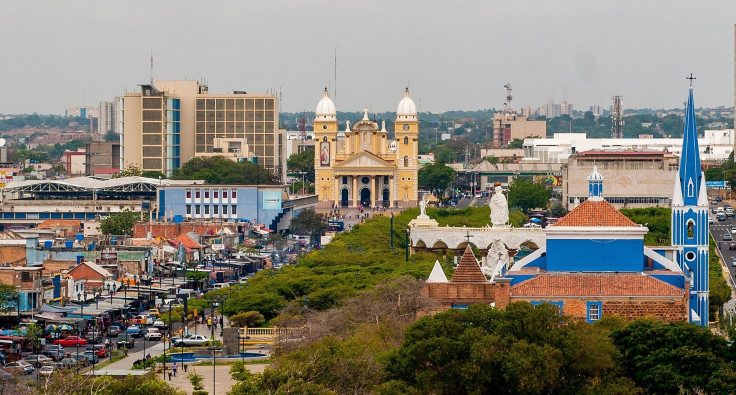Venezuela's Economic Needs May Push Opposition To Support Maduro's Debt Restructuring Plans
- President Maduro's plans aim to buy time to put Venezuela on a path to be able to restructure its debts.
- A lack of US political recognition makes opposition endorsement essential for securing creditor support.
- Creditor rejection of tolling agreement would likely incur a heavy cost to Venezuela in legal fees.
Earlier this month, the Venezuelan President Nicolas Maduro announced that his administration would delay the legal deadline on $60 billion of government debt to buy time for a comprehensive restructuring.
Maduro, in effect, was signaling his intention to work with bondholders to take the first step in Venezuela's journey to restructure its international debts.

However, while creditors have broadly welcomed the tolling announcement (as the formal suspension is known), it remains unclear whether Venezuela's opposition and the Biden administration will endorse the delay.
The US government does not recognize a Venezuelan President at this moment in time, and this makes the opposition's backing for the tolling agreement a prerequisite for creditor engagement.
Failure to reach an agreement would have severe financial ramifications for Venezuela.
If the country's creditors are forced to reject Maduro's offer in light of continued political uncertainty, then they will most likely have no option but to commence costly litigations against Venezuela in the US courts.
The Venezuela Creditor Committee, which brings together investors with bond holdings in excess of $10 billion, has highlighted that Venezuela's public funds would be much better spent reversing the decline in living standards since its economic isolation.
Indeed, the high costs of a failed restructuring may be the kicker that pushes moderate opposition figures to support Maduro's offer.
Representatives of the anti-government AD, PJ, and UNT factions will recognise that Venezuela's contested politics is a recurring source of concern for the international investment community and private sector more broadly.
Claudio Zampa of Mangart Capital Management, a hedge fund, has attributed a strong degree of responsibility for this reality to the US. He recently called for a 'formal decision by the US government to tell [bondholders] who is the legal representative of Venezuela'.
The Biden administration withdrew its recognition for former-opposition leader Juan Guaido's shadow presidency in January – a political gambit that was widely viewed as a failure.
Having already engaged the Maduro administration over vital oil exports in the wake of Russia's invasion of Ukraine, it is arguable that the Biden administration may wish to officially recognise Maduro as Venezuela's legitimate head of state.
With Saudi Arabia increasingly tilting towards China, the US will soon need to think more strategically about its long-term energy partners.
In the first instance, however, clarity for bondholders like Mangart Capital Management will likely have to be provided by Venezuela's opposition bloc.
If forthcoming, their backing for Maduro's tolling agreement would have a dual value.
Firstly, opposition support would be a clear signal to international investors that Venezuela (despite its divisions) is serious about finding a pragmatic approach to restructuring its outstanding debts.
Indeed, workable restructuring represents a nonpartisan issue that all political factions can coalesce around in the national interest. Why? Because Maduro or not, Venezuela's current debts preclude any meaningful recovery in living standards.
Venezuela is facing a severe humanitarian emergency, with millions unable to access basic healthcare and adequate nutrition. This has been confirmed by the UN Human Rights rapporteur, whose report stated that the current US sanctions and European "over compliance" are the main causes of the crises.
Secondly, domestic political consensus on the tolling agreement would serve as a nod to the Biden administration that it could safely endorse the delay without being undercut down the line by inter-party squabbling.
If opposition support garners a US endorsement, then bondholders would back the agreement as a workable (and inexpensive) route to repayment.
Away from the legal and diplomatic machinations, Venezuelans can ill-afford their government's debt restructuring efforts to fail and large sums be spent in the international courts.
Putting the public finances on a sustainable path is an essential step to ending Venezuela's punishing international isolation. This would serve to guarantee economic stability with consumer prices still high and growth insecure despite hyperinflation being beaten back.





















